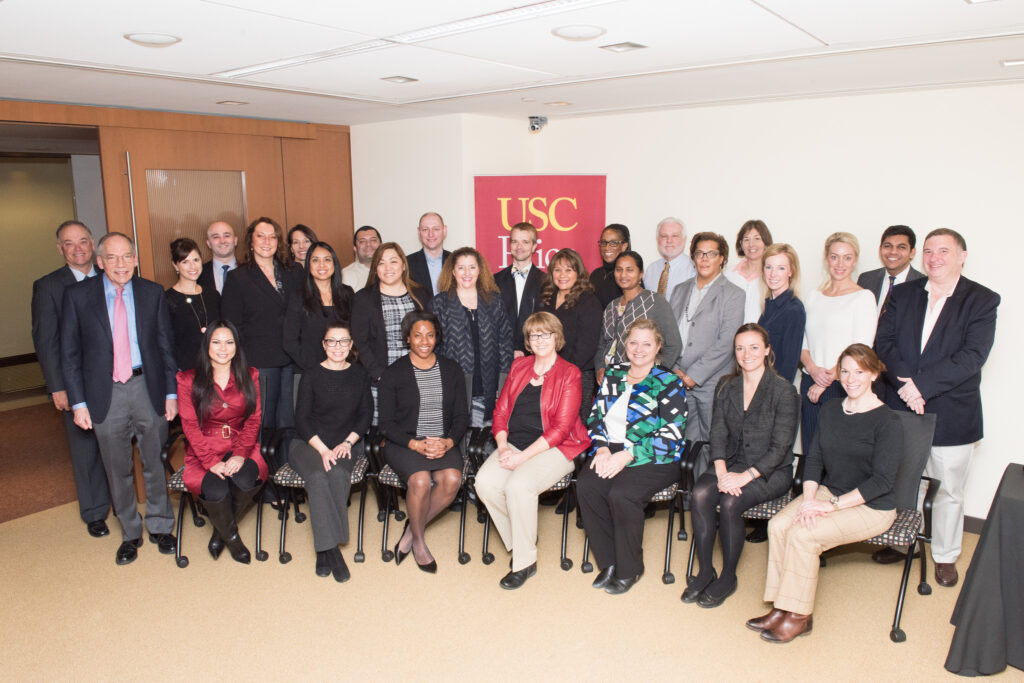The inaugural Washington, D.C. Health Policy Forum brought together leading experts from the federal government, industry and academia — giving students and alumni from the USC Price School of Public Policy the opportunity to delve deeply into the intricacies of making changes to the nation’s health care system.
The program, hosted by USC Price’s graduate health administration programs on Feb. 5 and 6, was put together by USC Price Professor Paul Ginsburg, a noted health care expert and the director of public policy at the USC Schaeffer Center for Health Policy and Economics. The event focused on three sectors that play key roles in developing, enacting and influencing federal health policies: Congress, the Executive Branch, and the numerous interest groups whose members are directly affected by these laws and regulations.
“The purpose of this program is for our students to better understand the policy concerns at the federal and state level, as well as some of the reform issues we are dealing with now,” said Vice Dean and Professor Michael B. Nichol, who directs the school’s graduate programs in health. “They’re hearing about how the process works behind the scenes, how there is collaboration on both sides of the aisle on the staff side to find ways to get things done on Capitol Hill, and how input from interest groups provides information on the real impact of the proposals.”
Examining the Big Picture
One major focus of the event included potential policy issues over the next two years.
Ginsburg, who also holds the Norman Topping Chair in Medicine and Public Policy at the Price School, told the group that looking ahead to 2016 and 2017, possible Congressional action on the ACA includes changing the so-called Cadillac tax that would end unlimited tax deductions for health benefits, seeking ways to lower individual policy premiums, reducing or eliminating employer mandates, tightening enrollment opportunities outside of open season, and improving risk adjustment. He said he also expects Congress to look at ways to speed Food and Drug Administration reviews to spur competition for innovative drugs, and to consider rate caps for small-market generic drugs.
However, one thing sure to be left off the agenda will be single-payer health care, regardless of what some presidential candidates may be proposing, Ginsburg said.
The day’s speakers addressed a wide range of topics and drew on their experiences to make their points about policymaking in health care. These included the shifting of policymaking from committees to the leadership in Congress, and from Cabinet secretaries to the White House in the administration. They addressed the role of staff in Congress and the good relationships between many staff across the aisle, who need to work together effectively to get legislation passed. Speakers also described how stakeholder groups exert influence on the policy process and state health policy within the framework of the federal system.
Informing Future Leaders
Executive Master of Health Administration student Angie Simpson of Thousand Oaks – who is graduating in May – noted how insights gained at the forum not only will inform her professional work in the pharmaceutical industry but also better prepare her to run for a city council seat.
“Having an understanding about the role of federal agencies will help me in my job, and having a strong foundation in health care will be helpful as health issues become more important in the election,” she said.
Nichol hopes the Washington forum will become an annual program for health administration students and alumni.
“The students have gotten a great deal from it, not only information and learning but also networking,” Nichol said. “We’re excited to keep this program going.”
